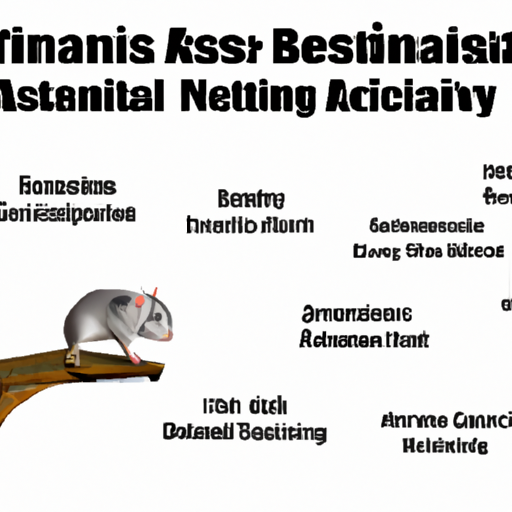 Introduction:
Introduction:
Animal testing has long been a subject of debate and controversy, with passionate arguments on both sides. While it is essential to acknowledge the ethical concerns associated with this practice, it is equally crucial to recognize the undeniable benefits it brings to both animals and humans. This article aims to provide a comprehensive and detailed exploration of how animals benefit from animal testing, shedding light on its indispensable role in advancing veterinary medicine, enhancing animal welfare, developing life-saving treatments, and ensuring the safety of various consumer products.
I. Veterinary Medicine Advancements:
1. Identifying and treating diseases: Animal testing has played a pivotal role in identifying and understanding numerous diseases that afflict both animals and humans. By studying illnesses in animals, scientists can develop effective treatments, vaccines, and diagnostic techniques, leading to improved health outcomes for animals. This, in turn, minimizes the suffering and enhances the quality of life for countless animal species.
2. Surgical techniques and advancements: Animal testing has been instrumental in refining surgical procedures, such as organ transplantation, orthopedic surgeries, and cardiac interventions, which have both veterinary and human applications. Through these experiments, veterinarians can develop new techniques, minimize risks, and improve surgical outcomes, benefiting animals and providing crucial insights for human medical advancements.
II. Animal Welfare Enhancements:
1. Product safety testing: Animal testing serves as a vital tool in ensuring the safety of various consumer products, including cosmetics, household chemicals, and pharmaceuticals. By subjecting animals to these tests, potential hazards can be identified, allowing for the development of safer products that pose minimal risks to both animals and humans.
2. Toxicity testing and regulations: Animals are used to determine the toxicity levels of substances, enabling regulatory agencies to establish guidelines and regulations to protect animals and humans from potentially harmful products, chemicals, and environmental factors. These tests help assess the safety of food additives, pesticides, and industrial chemicals, reducing the likelihood of harm to animals and humans alike.
III. Life-saving Treatments and Medical Breakthroughs:
1. Advancing medical research: Animal testing has been integral to numerous medical breakthroughs, leading to the discovery of life-saving treatments and therapies. Animals, often genetically similar to humans, provide valuable insights into the efficacy and safety of potential drugs, evaluation of treatment protocols, and understanding disease mechanisms. This research has contributed significantly to combating diseases such as cancer, diabetes, heart diseases, and infectious diseases, ultimately benefiting animals and humans alike.
2. Vaccination development: Animal testing has been pivotal in the development of numerous vaccines, protecting animals from deadly diseases like rabies, distemper, parvovirus, and feline leukemia. By subjecting animals to controlled experiments, researchers can determine vaccine efficacy, dosage requirements, and potential side effects, saving countless animal lives and providing invaluable knowledge for human vaccine development.
3. Organ and tissue transplantation: Animal testing has been instrumental in advancing organ and tissue transplantation techniques, benefiting both animals and humans. Through experiments on animals, researchers can refine immunosuppressive therapies, minimize graft rejection, and improve surgical procedures, ultimately leading to more successful transplants and extending the lifespan of both human and animal recipients.
Conclusion:
While animal testing continues to be a subject of ethical debate, it is essential to acknowledge the profound benefits it has brought to animals and humans alike. The advancements in veterinary medicine, animal welfare enhancements, and life-saving medical breakthroughs would not have been possible without the insights gained from animal testing. However, it is crucial to continue exploring alternative methods and improving animal welfare standards to minimize the use of animals in experiments while still ensuring continued progress in medical and scientific research.
